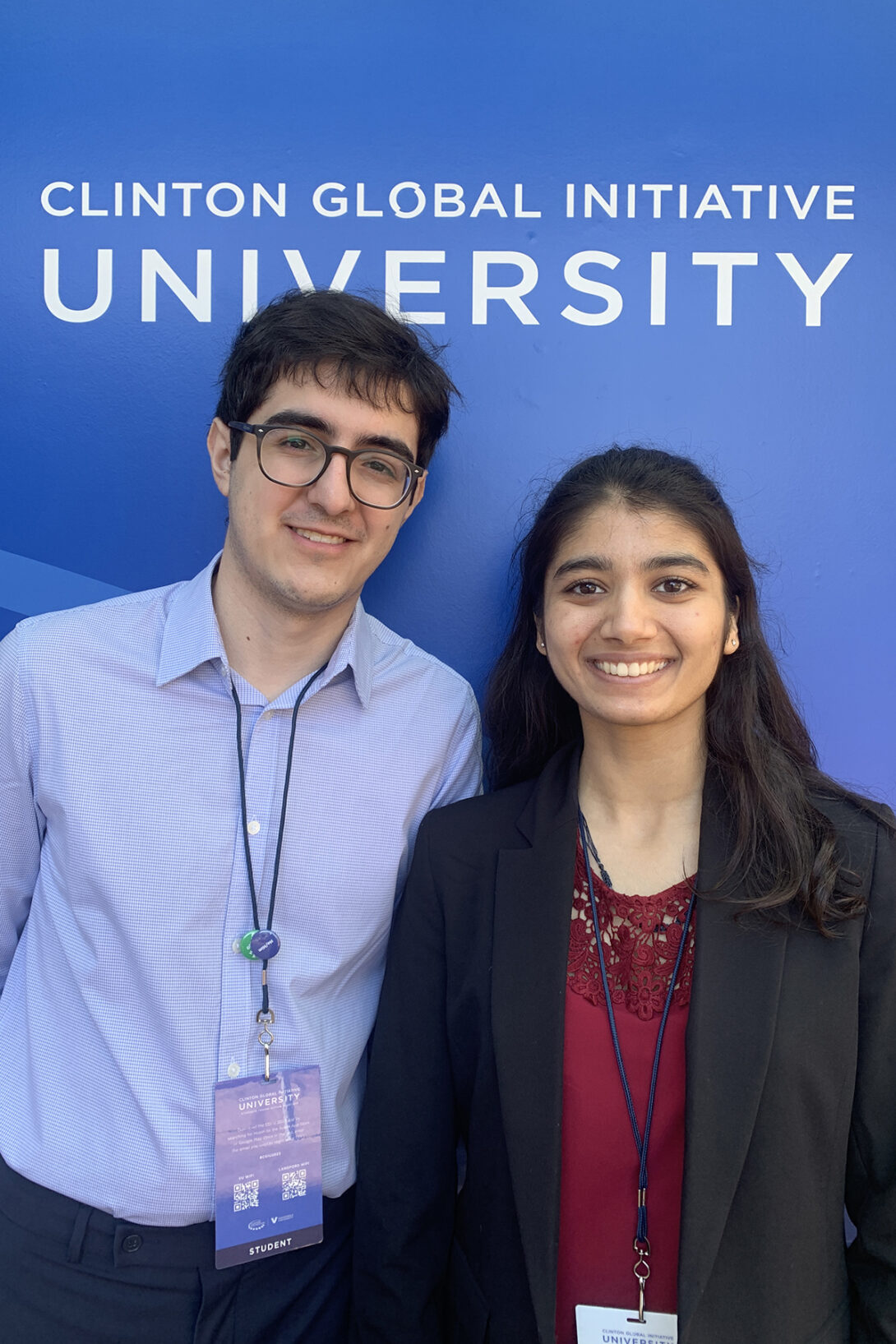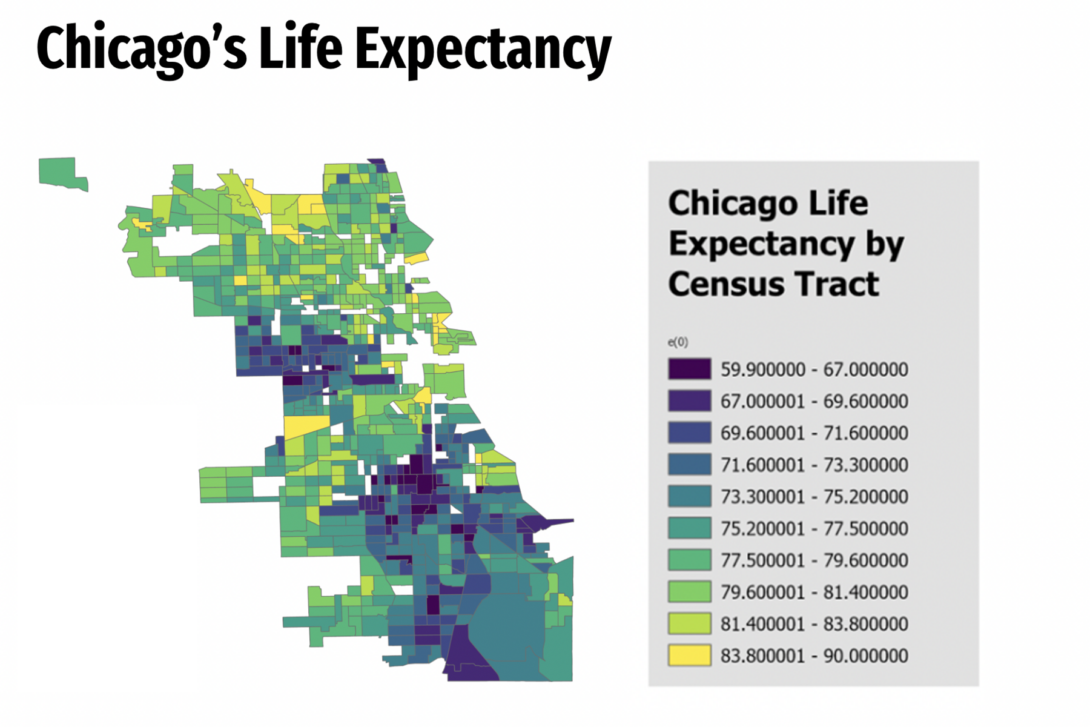Mapping and health equity project created by UIC alum, student addresses Chicago’s health disparities
x

Near the end of the 2019 fall semester, Sonya Gupta was a University of Illinois Chicago undergraduate conducting research on the location and extent of healthcare deserts in the Chicago area and the potential of mobile health clinics to bridge the gap.
“One of the tools that I thought would be helpful in this project was Geographic Information Systems, so I started to teach myself,” said Gupta, an Honors College alumna who graduated in 2022 with degrees in biological sciences and Russian studies from the College of Liberal Arts and Sciences.
In the fall of 2020, biological sciences major Ryan Zomorrodi started research focused on Chicago area hospital closures and how they affected health access and outcomes. He also realized GIS would help the analysis, so he taught himself how to use it.
Gupta and Zomorrodi, an Honors College member who will graduate May 6 from UIC, later met on the recommendation of a mutual research mentor, Richard Barrett, UIC professor emeritus of sociology.
They not only realized the key role GIS would have in their research, but they started to share ideas and tips on conducting GIS analyses. It led to a collaboration on a larger project investigating how to improve health infrastructure, including community health clinics and safety-net hospitals, within Chicago to help close the access gap in medical deserts.
“During this time, we realized the tremendous potential of GIS as a powerful tool for community members and those within healthcare and public health fields. Furthermore, we were uncovering many connections between environment, geography, and health,” said Gupta, who is currently at Harvard University, where she is pursuing a master’s degree in regional studies with a focus on medicine and public health.
This work eventually led them to create a workshop series, then called Mapping Chicago, where they presented in classes, club meetings and conferences about using GIS software to better understand Chicago health disparities, create evidence-based solutions and improve health policy. Launched in 2022, their presentations also addressed structural violence, social and environmental factors of health, and data literacy through maps.
x

The UIC-piloted research and advocacy project, now called GeoAdvocates, has quickly evolved to earn support from the Clinton Foundation and Harvard University.
In March, Gupta and Zomorrodi presented the initiative as newly selected fellows with the Clinton Global Initiative University, a community of individuals committed to developing innovative solutions to various worldwide problems.
The pair is honored to join the organization’s latest cohort of like-minded innovators.
“It’s incredible to have received the opportunity to connect with leaders striving to address social injustices through work in various fields,” Zomorrodi said. “It has been a great opportunity to learn from others in the cohort and their experiences.”
With mentorship through the Clinton Foundation’s 10-month project development program, they plan to expand the program to more community-based settings and grow new partnerships with community organizations to better reach disadvantaged communities in other U.S. cities. Currently, they have started expanding into the Boston area. They also plan to build an online version of the workshop and a parallel curriculum that teaches participants how to use QGIS, a free, open-source software.
Their overall goal for the workshops is to empower young participants to take an active role in researching health inequities, advocating for policy, and pursuing similar engagement activities within their communities.
To date, they have taught over 15 workshop series in primarily academic settings, including in undergraduate, graduate and medical school courses. They are also collaborating with local organizations, such as Imagine Englewood if and One Health Englewood. Feedback the researchers received via participant surveys indicates significant increases in participants’ knowledge and perceived empowerment to expand to their community.
Reflecting on the initiative’s growth, Gupta and Zomorrodi credit the support and encouragement their idea received at UIC, including an Honors College research grant and winning the School of Public Health’s Lightning Talk Competition.
“I still remember when the workshop series just launched and hadn’t gained much traction, many faculty members were willing to let us debut the workshop in their classes. Their support was immensely valuable and greatly contributed to the development and growth of the project, ultimately resulting in being awarded the 2022 Maurice Prize and being named as 2023 Clinton Global Initiative University fellows,” Gupta said.
Zomorrodi added, “We will be forever grateful to the community at UIC.”